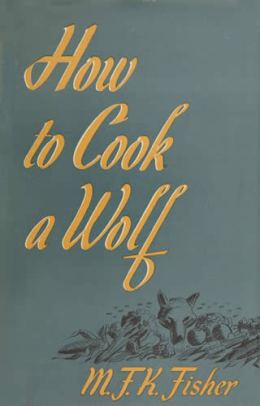
When a cookbook has a chapter called “How to Make a Pigeon Cry,” you know it’s going to be about more than recipes. Originally written in 1942 by that most lyrical of food writers, M.F.K. Fisher, as a guide for the enforced frugality of food rationing, the book does have tips on how to stretch scrambled eggs by using breadcrumbs and even how to make your own soap. But the real lesson is in how Fisher cherishes each egg or dollop of cream like it was a gift delivered unexpectedly to her door. Even water isn’t just water; it’s something to be savored and discussed. (Don’t consider it boiled until it nearly leaps out of the pan “full of sound and fury,” she advises — but don’t boil it too long, either, making it “flat and exhausted.”) Only when we understand water can we move on to soup and meats, each dish seasoned with Fisher’s comfortable wit and a clarity of purpose born of scarcity that modern cooks can only imagine.
